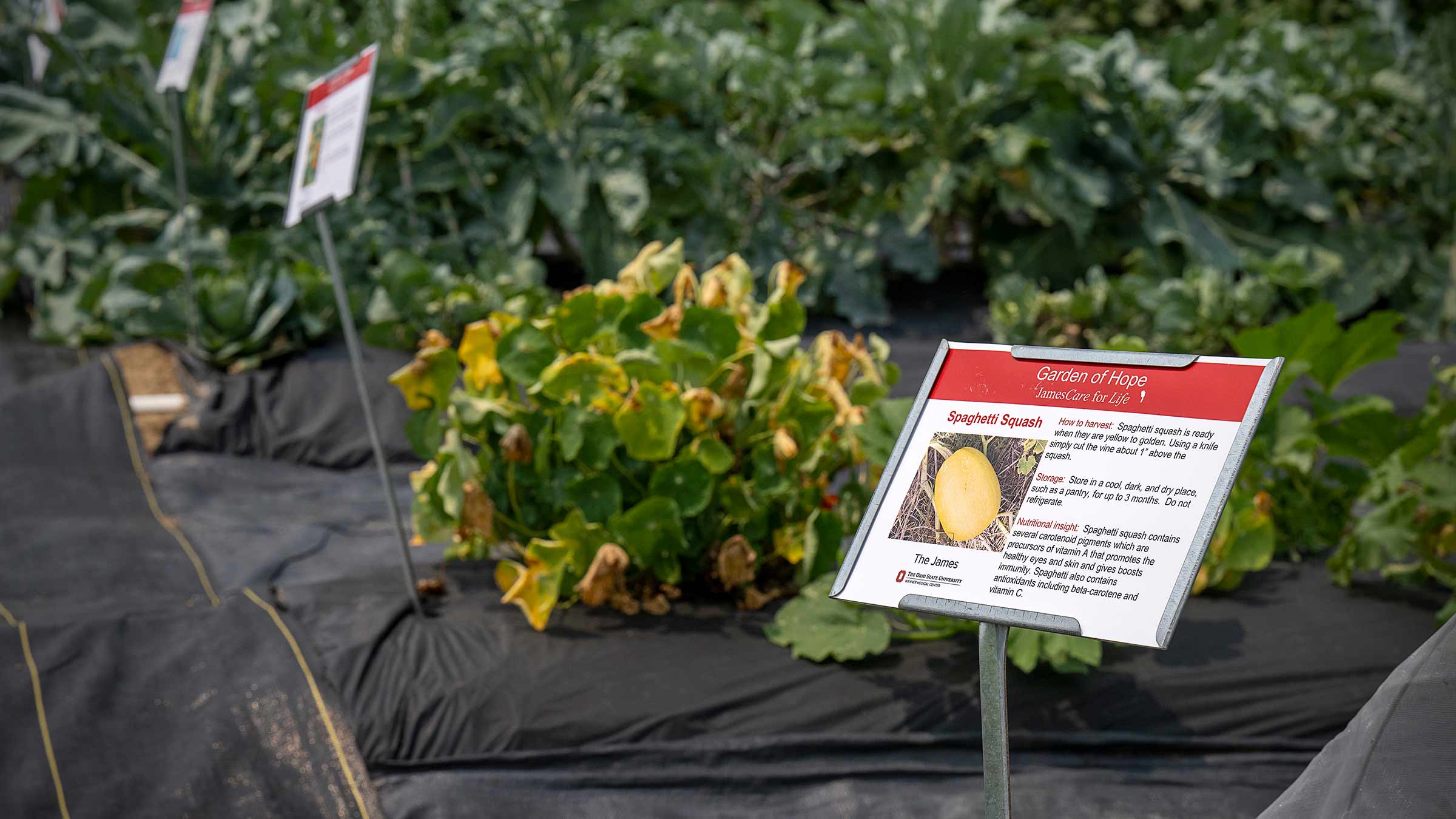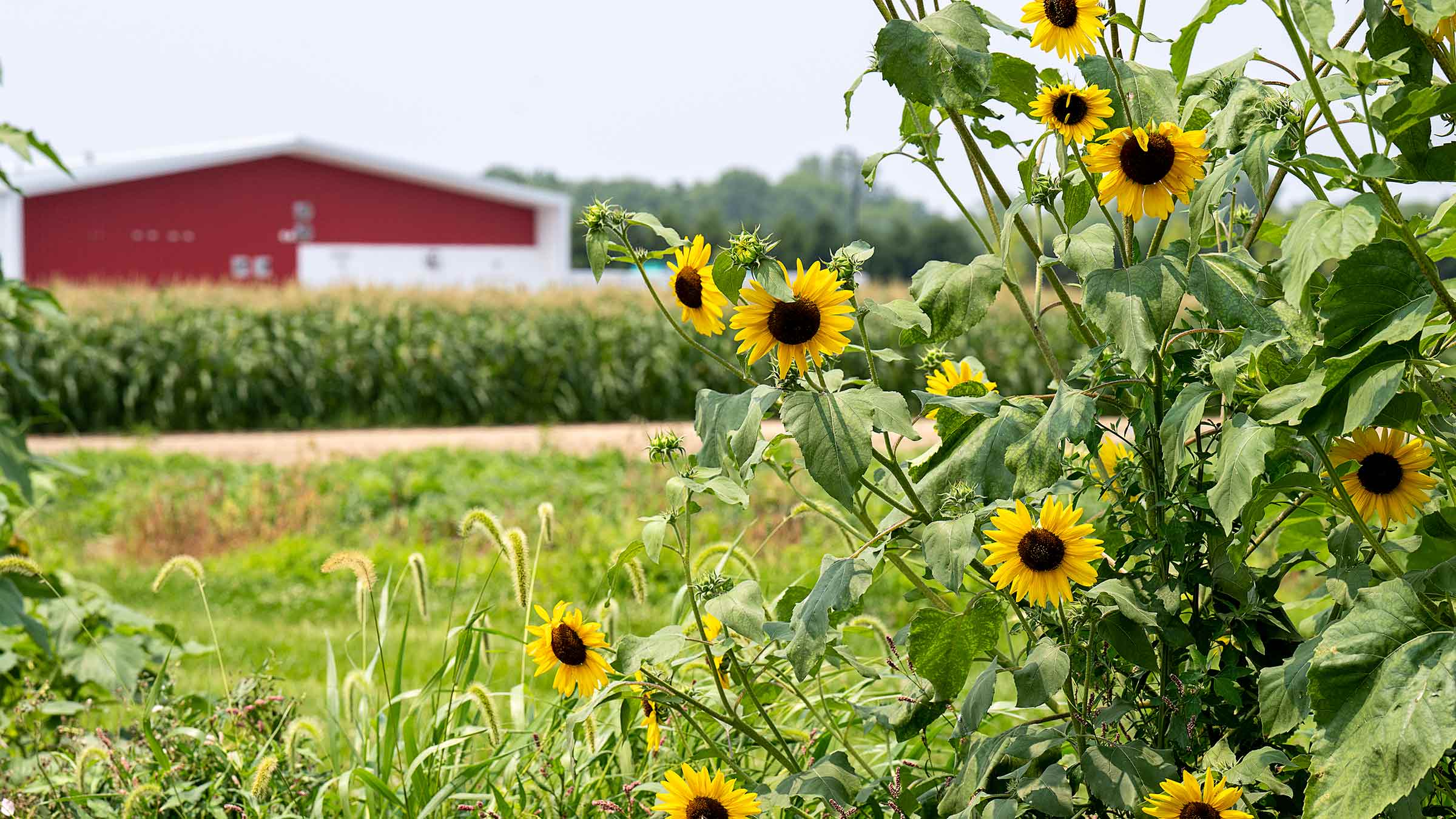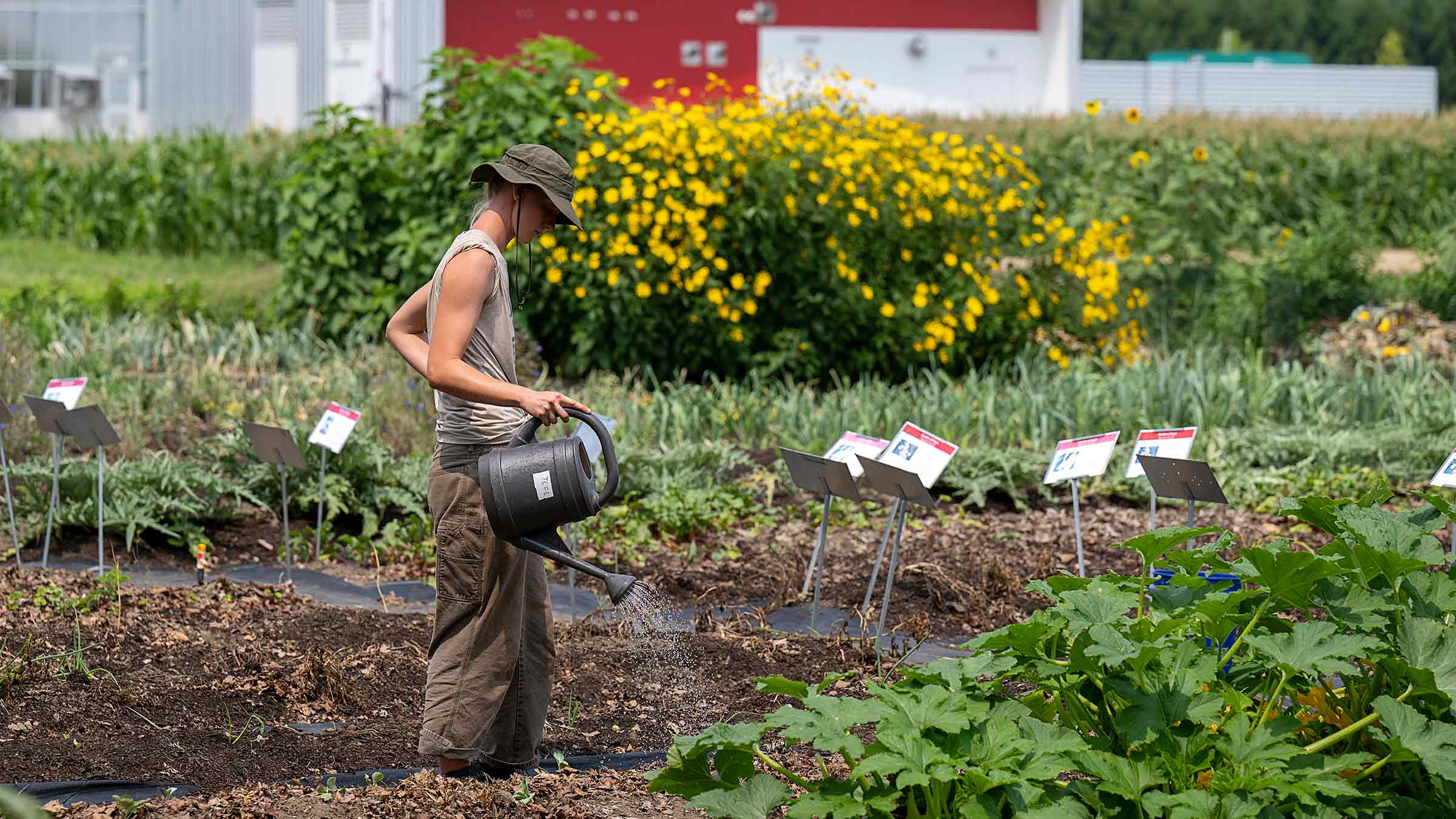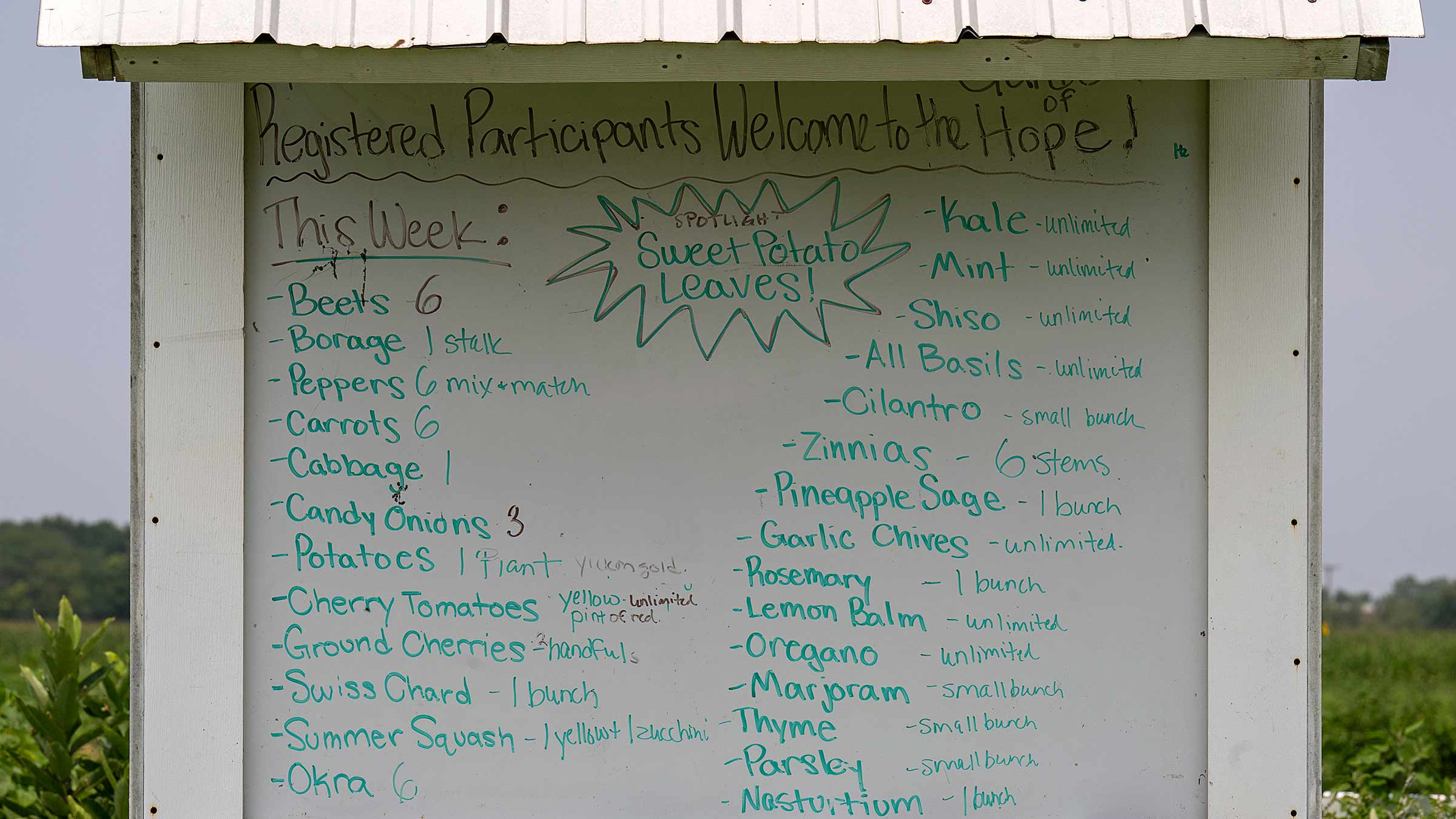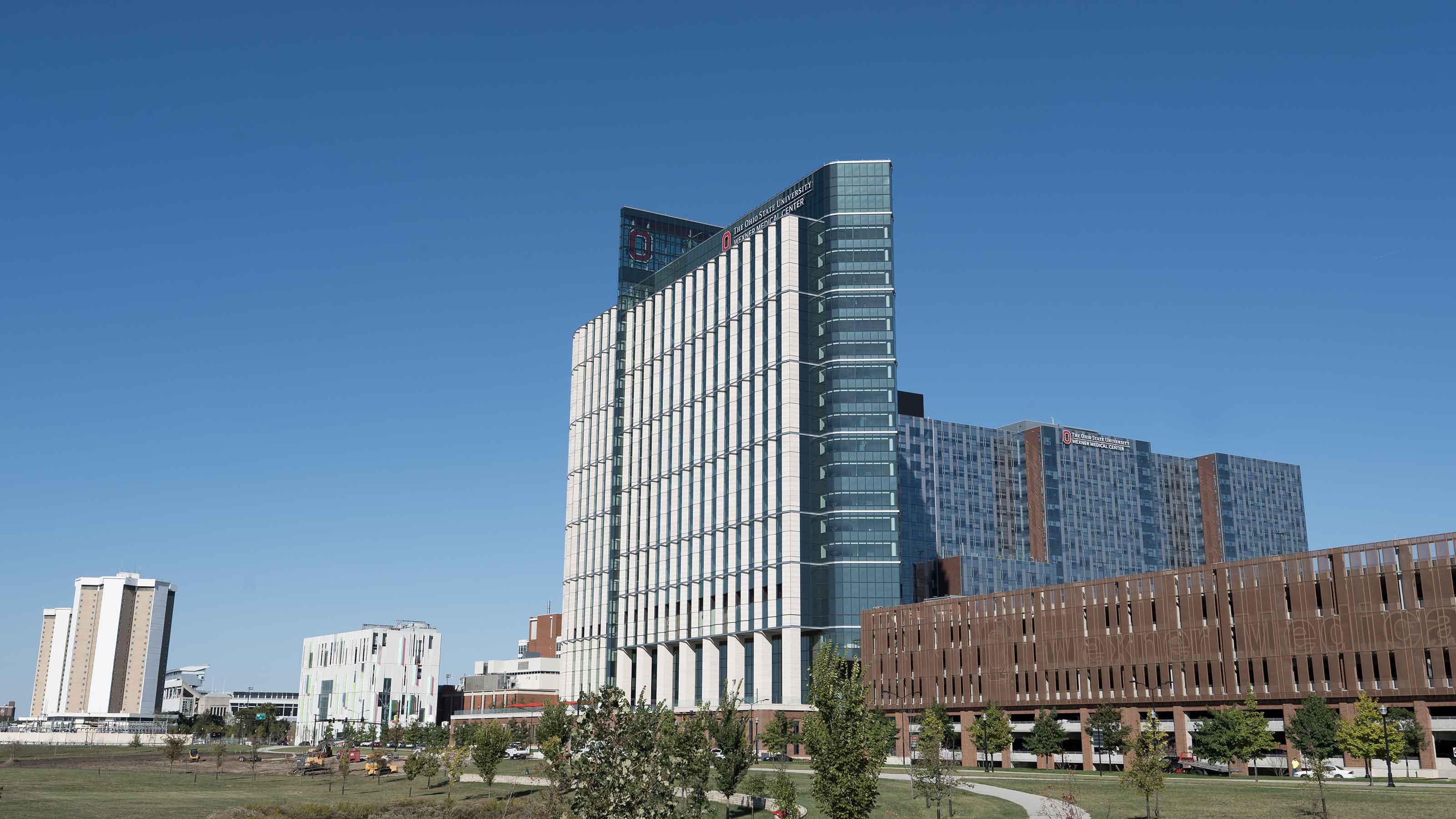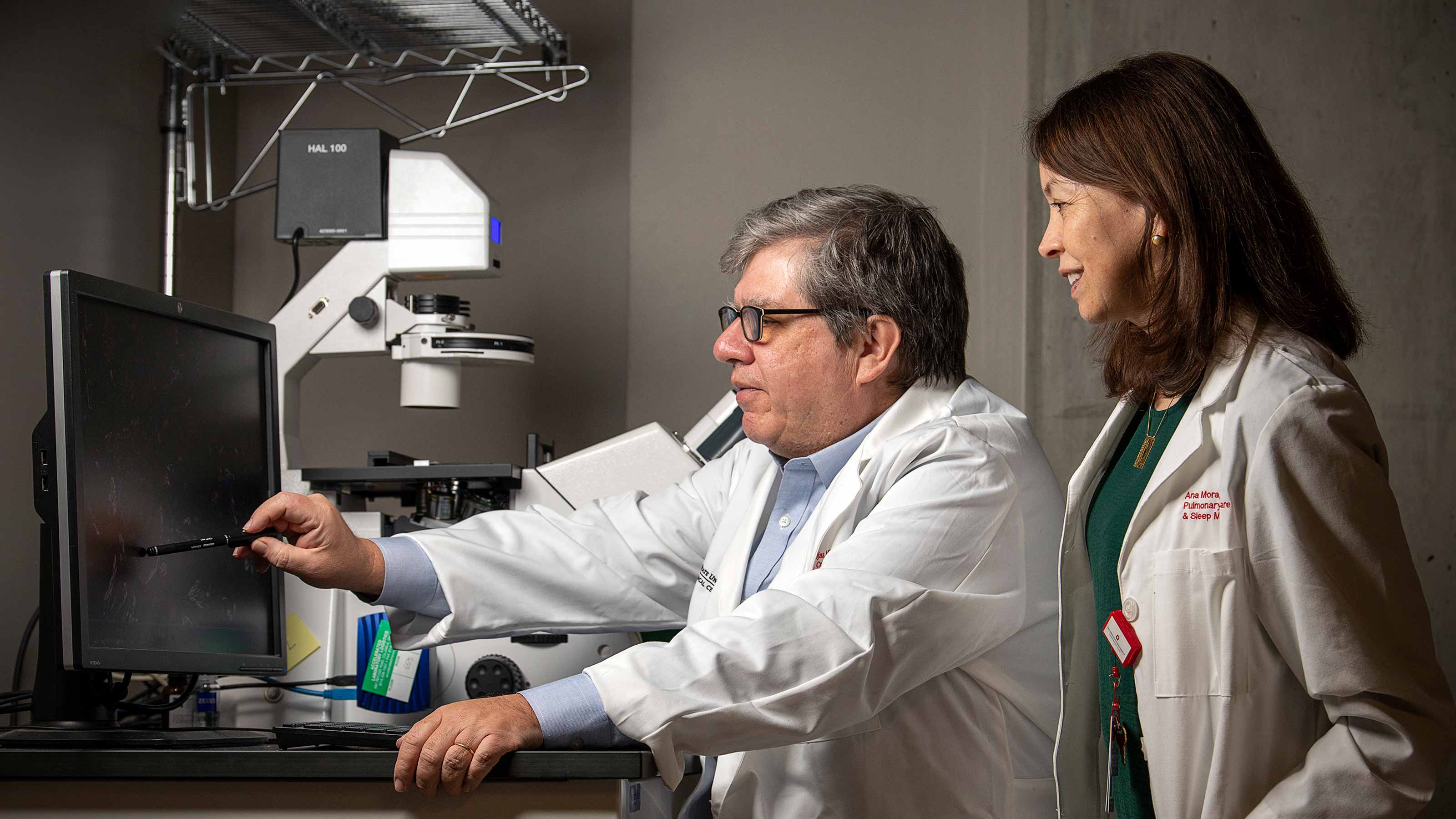Planting the seeds for a healthier diet for cancer patients and survivors
Studies show cancer patients reap the benefits of a farm-to-table project with the help of Ohio State’s Garden of Hope.
On any day from June through October, cancer patients, survivors and their caretakers can be found at the Garden of Hope on The Ohio State University’s Waterman Farm, harvesting a rich bounty of produce that features everything from kohlrabi and purple carrots to edible flowers and fresh corn on the cob.
They take home what they harvest, along with healthy recipe ideas and nutrition education from registered dietitians from The Ohio State University Wexner Medical Center. The urban farm is a project of JamesCare for Life, which supports making evidence-based lifestyle changes known to help prevent disease and improve outcomes when one occurs.
Research from Colleen Spees, PhD, RD, director of The Ohio State University Hope Laboratory and member of the Molecular Carcinogenesis and Chemoprevention research program at The Ohio State University Comprehensive Cancer Center – James Cancer Hospital and Solove Research Institute (OSUCCC – James), shows the participants in garden studies are reaping both physical and mental health benefits.
Garden empowers cancer patients/survivors to live a healthier lifestyle
Cancer patients and their loved ones report there’s little they can control along their cancer journey. Lifestyle changes like eating healthier and exercising are factors patients can change, but that’s not easy.
There are many barriers to adopting healthy eating. A lack of access to healthy food and resources, conflicting health messages and time constraints make it difficult to consume a cancer-fighting dietary pattern. An unhealthy diet over time can contribute to many chronic diseases, from cancers to diabetes and cardiovascular diseases. But improving diet quality can prevent some diet-related diseases from occurring in the first place and may improve the quality of life for those with disease.
The Garden of Hope better enables adoption of a healthy, plant-focused diet for people who are beyond their cancer treatment and those who are currently receiving treatment (at the OSUCCC – James, patients are often called “survivors” from the moment of their diagnosis). Caregivers for these groups are able to benefit, too. They all receive education and readily available, free, healthy food. Instead of handing an overwhelmed cancer patient a few worksheets with diet and recipe tips, they’re immersed in a new culture of health from farm to table.
“The garden started over 10 years ago as a collaboration at Ohio State among the OSUCCC – James, the Ohio State Wexner Medical Center and the Waterman Agricultural and Natural Resources Laboratory,” says Julie DeBord, the program manager of JamesCare for Life. “Dr. Colleen Spees joined within the first year and has been an ongoing advocate for the garden, which is currently at 1.5 acres and over 100 varieties of veggies and herbs.”
“There are many fad diets, especially those that target cancer patients with false promises of cures. The premise of the Garden of Hope is simple: Provide patients with evidence-based nutritional information to support a plant-based lifestyle.”Colleen Spees, PhD, RD
The astonishing results speak to the broader potential for this “food is medicine” model.
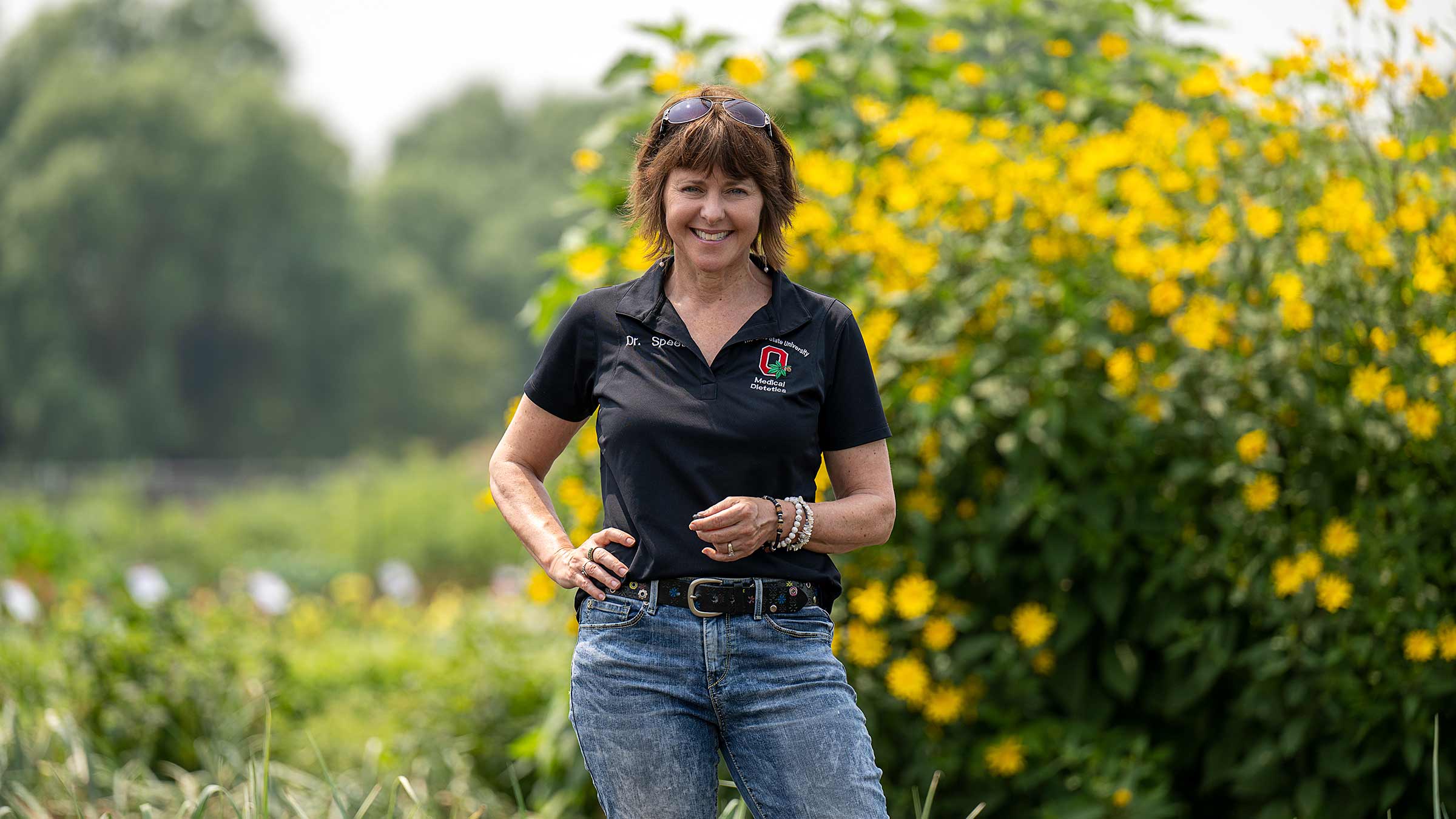
How food can be medicine
Dr. Spees’s research on lifestyle modifications to help prevent or reduce nutrition-related disease risks is both personal and professional. Three of her six siblings were diagnosed with cancer and found to be carriers of a gene mutation known as Li-Fraumeni syndrome, making them more susceptible to cancer.
“I don't recall a time when cancer wasn’t a part of my life.”Colleen Spees, PhD, RD, director of The Ohio State University Hope Laboratory
Dr. Spees started her career as a registered dietitian, then got her doctorate studying her family’s particular mutation. Clinician scientists work from “bench to bedside and beyond” to bring research findings from the lab to the individuals most in need.
For Dr. Spees, her living laboratory is in the garden.
Unlike cancers in Dr. Spees’s family, most cancers are not caused by genetic mutations but are linked to the environment and modifiable lifestyle behaviors. Many of the most common cancers are linked to obesity. Meanwhile, most U.S. adults fail to meet the dietary recommendations for cancer prevention and survivorship, such as adopting a plant-based diet and engaging in regular physical activity.
When someone is diagnosed with cancer, they are often overwhelmed and anxious. Research interventions that combine healthy food provisions with tailored nutrition counseling provide support during the chaos of cancer.
Despite evidence supporting the benefits of adequate nutrition, standard nutrition guidance and physical activity programs aren’t routinely integrated into cancer care. This is why helping people adopt a “food is medicine” lifestyle is essential, says Dr. Spees.
Hands-on gardening experience improves well-being in addition to health
At the Garden of Hope, registered participants can harvest vegetables to bring home and join food demonstrations to learn how to prepare them. They also have access to dietitians who provide nutrition counseling, healthy recipes, cooking tips and safe food-handling practices. Demos occur onsite at the garden and are available online.
“It’s an educational garden at its core,” DeBord says. “We pair harvesting herbs and vegetables with education from two James dietitians, who focus on recommendations from the American Institute for Cancer Research about healthy eating for cancer survivorship and prevention, including a plant-based lifestyle.”
The focus is on making small, realistic changes over time, based on evidence and not on nutrition trends.
Besides supporting a healthier diet, the garden also nourishes the soul. “It’s free from wifi and some of the stressors of life, so they find it a peaceful haven where they can harvest and enjoy being outside,” Dr. Spees says.
There’s also a sense of camaraderie in the garden.
“We also see that participants have a chance to meet other survivors or caregivers while they are in the garden,” DeBord says. “And we know that feeling connected has a positive impact in many ways. I consider it is a success anytime someone can walk away from our programs feeling a sense of community.”
Research shows the benefits of the garden
When Dr. Spees began helping in the Garden of Hope soon after it launched in 2012, it wasn’t long before she realized she needed to study its benefits. “They’re telling me it’s their urban oasis, helping their stress levels and navigating the chaos of cancer, but no one was studying it. So I thought, why not me?” she says.
She launched the Hope Lab — a “crop to clinic” model — to study how lifestyle modifications can improve health. What started as hands-on education to help people adhere to evidence-based diet recommendations became a way to measure clinically meaningful biological results.
Dr. Spees found improvements in participants’ inflammatory and metabolic markers, blood lipids, body composition, functional status, quality of life and the microbiome. “My research shows we can modify lifestyle behaviors to improve the nutritional status of individuals. This can decrease the prevalence of cancer, and if diagnosed, it can improve our response to treatment and possibly slow disease progression,” she says.
For example, in an early Hope Lab study, participants showed significant increases in how much produce they ate and significant decreases in how often drank sugary beverages or ate red and processed meat. This corresponded with signs of improved health, such as decreases in blood cholesterol and blood glucose and increases in skin carotenoids (correlated with increased fruit and vegetable intake).
In two different Hope Lab studies of lifestyle modifications for cancer survivors, participants significantly improved their adherence to dietary recommendations. One of the studies focused on survivors of cancer affected by obesity and showed significant improvements in body weight (-3.9 kg on average), BMI (-1.5), waist circumference (-5.5 cm), cholesterol (total cholesterol -6%) and blood pressure (-9.5 mmHg).
In addition to the physical health improvements, says Dr. Spees, they’ve found significant improvements in quality of life for both the caregivers and patients in her Hope Lab clinical trials.
Expanding upon her garden interventions, Dr. Spees is now leading a national initiative to provide home-delivered food to patients affected by lung cancer. The Hope Lab team and their research partners have delivered over 30,000 meals and provided 1,500 nutrition counseling sessions to participants across the country. Preliminary data is promising and shows participants have improved diet and quality of life as well as reduced depression and food insecurity. Her team is currently analyzing treatment toxicities, hospitalizations, malnutrition and the microbiome.
How cancer behaves in the human body is as complex and individualized as the patients themselves. But the simple truth is that healthy lifestyle modifications give everyone a better chance for optimal health.
“We’re supporting people on their cancer journey while exposing them to an enriched environment where they thrive. We want families to develop a positive relationship with food and learn how to prepare delicious and convenient meals to support health and their families,” Dr. Spees says.

Your support fuels our vision to create a cancer-free world
Your support of cancer care and pioneering research at Ohio State can make a difference in the lives of today’s patients while supporting our work to improve treatment and reduce cases tomorrow.
Ways to Give



